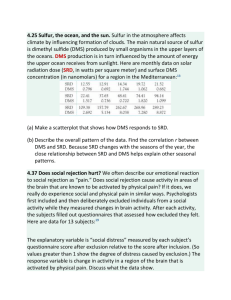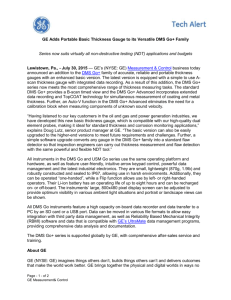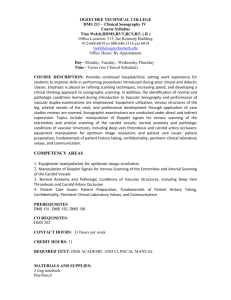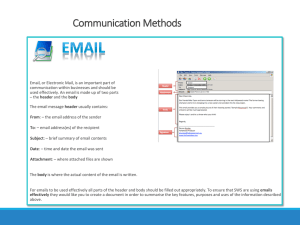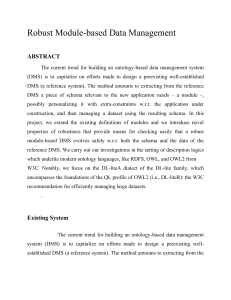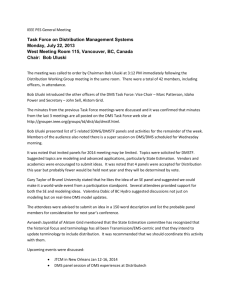Effects of Decentralized Purchasing Authority
advertisement
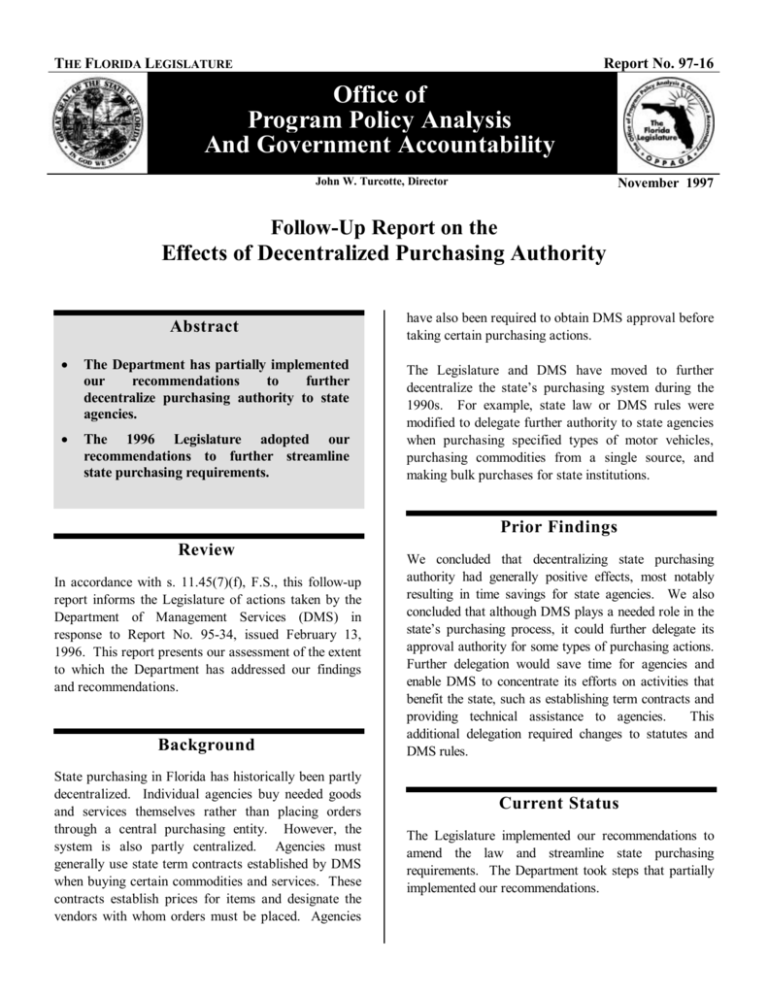
THE FLORIDA LEGISLATURE Report No. 97-16 Office of Program Policy Analysis And Government Accountability John W. Turcotte, Director November 1997 Follow-Up Report on the Effects of Decentralized Purchasing Authority Abstract • The Department has partially implemented our recommendations to further decentralize purchasing authority to state agencies. • The 1996 Legislature adopted our recommendations to further streamline state purchasing requirements. have also been required to obtain DMS approval before taking certain purchasing actions. The Legislature and DMS have moved to further decentralize the state’s purchasing system during the 1990s. For example, state law or DMS rules were modified to delegate further authority to state agencies when purchasing specified types of motor vehicles, purchasing commodities from a single source, and making bulk purchases for state institutions. Prior Findings Review In accordance with s. 11.45(7)(f), F.S., this follow-up report informs the Legislature of actions taken by the Department of Management Services (DMS) in response to Report No. 95-34, issued February 13, 1996. This report presents our assessment of the extent to which the Department has addressed our findings and recommendations. Background State purchasing in Florida has historically been partly decentralized. Individual agencies buy needed goods and services themselves rather than placing orders through a central purchasing entity. However, the system is also partly centralized. Agencies must generally use state term contracts established by DMS when buying certain commodities and services. These contracts establish prices for items and designate the vendors with whom orders must be placed. Agencies We concluded that decentralizing state purchasing authority had generally positive effects, most notably resulting in time savings for state agencies. We also concluded that although DMS plays a needed role in the state’s purchasing process, it could further delegate its approval authority for some types of purchasing actions. Further delegation would save time for agencies and enable DMS to concentrate its efforts on activities that benefit the state, such as establishing term contracts and providing technical assistance to agencies. This additional delegation required changes to statutes and DMS rules. Current Status The Legislature implemented our recommendations to amend the law and streamline state purchasing requirements. The Department took steps that partially implemented our recommendations. Any state contracts subject to the surcharge become optional for use by state agencies. As a result, agencies will be able to choose whether to purchase from state contracts with a surcharge or other sources based on price considerations. Actions Taken Local Purchasing Source Option. As we recommended, the Legislature amended s. 287.056, F.S., in 1996 to eliminate the local purchasing source option. The local purchasing source option allowed purchases up to $11,000 from local vendors who offered lower prices than state term contracts. However, agencies rarely used this option due to excessive documentation requirements and restrictions on these purchases to Florida-domiciled businesses. Actions Partially Taken Delegation of Prior Approval Authority. We recommended that DMS eliminate the requirement that agencies obtain prior approval for purchases in three areas. First, DMS changed its rules to eliminate prior approval for purchases of print shop equipment. Second, the Legislature eliminated the prior approval requirement for waiving the need to advertise when soliciting bids. Finally, an interagency purchasing work group composed of DMS and other agency purchasing staff is presently considering eliminating the prior approval requirement for agency term contracts. We continue to believe that eliminating this requirement would streamline the purchasing process. Single Source Purchases. As we recommended, the Legislature amended s. 287.057, F.S., in 1996 to raise the dollar threshold at which agencies could purchase from a single source without DMS approval. While agencies previously had to seek DMS approval for single source purchases over $23,000, they now have approval to make these purchases up to $75,000 under their own authority. Single Bid Response. As we recommended, the Legislature amended s. 287.057(4), F.S., in 1996 to allow agencies more authority to purchase items without prior approval from DMS when a single bid response is received. Agencies were given the authority to negotiate with the single bidder. They are required to report to DMS quarterly when this authority is exercised. Institutional Purchasing. As we recommended, DMS contacted the state agencies involved in making purchases for state institutions in an effort to establish an interagency work group for coordinating these purchases. However, an interagency work group has not been established. We continue to believe that better coordination among agencies would produce savings. Contract Exception Purchases. Legislation passed in 1996 will result in the same effect as one of our recommendations to the Department. Our recommendation was for DMS to make price a consideration when authorizing agencies to make purchases from sources other than state contracts (contract exception purchases). We recommended that DMS select contracts for this flexibility on a trial basis. DMS did not implement this recommendation. However, Legislative action to create s. 287.1345, F.S., and amend s. 287.056, F.S., will result in making some state contracts optional. This law change authorizes DMS to impose a surcharge on users of state contracts. Motor Vehicle Purchases. As we recommended, DMS reviewed its lists of motor vehicles that can be purchased without its prior approval. However, DMS determined that it would not be feasible to expand the lists. DMS managers indicated that they would continue to review the lists periodically and expand them when feasible. We continue to believe that expanding the lists of equipment that agencies can purchase without DMS prior approval would streamline state purchasing yet provide reasonable controls on the purchasing process. This project was conducted in accordance with applicable evaluation standards. Copies of this report may be obtained by telephone (850/488-0021 or 800/531-2477), by FAX (850/487-3804), in person (Claude Pepper Building, Room 312, 111 W. Madison St.), or by mail (OPPAGA Report Production, P.O. Box 1735, Tallahassee, FL 32302). Web site: http://www.oppaga.state.fl.us/ Project Supervised by: Tom Roth 488-1024 Project Conducted by: Becky Vickers 487-1316 -2- -3-
